Research projects
The re-use of treated wastewater as drinking water*

Europe has experienced severe and prolonged droughts in recent years, notably in 2018, 2020, and 2022. With climate change, such extended periods of drought are likely to become more frequent in the future. These events have led to drinking water shortages, reduced crop yields, ecosystem degradation, and significant economic losses. Additionally, drinking water reserves may come under increasing pressure.
One potential solution is the reuse of treated wastewater. By repurposing treated wastewater for agriculture, industry, ecology, or households, we can create a more sustainable and secure water supply. Using treated wastewater as a source of drinking water could further enhance this approach.
However, two significant barriers hinder the widespread adoption of treated wastewater reuse. The first is a lack of understanding regarding its safety and health implications. It’s crucial to investigate the pollutants present in treated wastewater and assess whether they might infiltrate groundwater. The second barrier is public uncertainty about the safety of drinking water produced from wastewater. For public acceptance to occur, safety must be ensured and scientifically validated, along with the development of effective communication strategies.
This project aims to tackle these issues through an interdisciplinary approach.
Project Details
*Follow-up of GROW (2018-2023): Re-use of treated wastewater for irrigation, groundwater recharge: environmental impacts and public perception
Funding: VUB Interdisciplinary Research Programme
Started on 1/11/2024
Ends on 1/11/2029
Research Manager: Joke Bauwens; Pascal Verhoest
The Affective Epistemology of Dislocated Journalists: Emotions as knowledge among journalists exiled, displaced, and repatriated in the context of the Russo-Ukrainian War
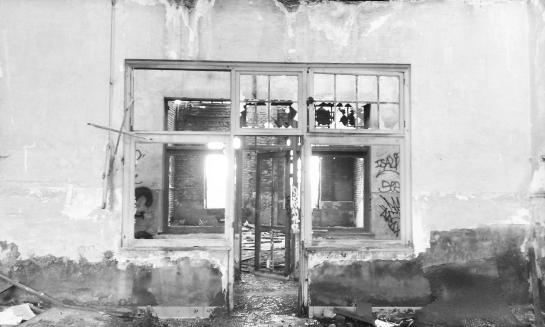
This research project addresses the affective epistemology of journalists dislocated – exiled, internally displaced, repatriated – in the context of the Russian-Ukrainian War. Drawing from research on exile journalism, conflict reporting, and emotions in journalism, and based on a comprehensive qualitative methodology including (digital) ethnography, interviewing, and textual analysis, I address the following research questions: How does the affective proximity of exile/ displaced/repatriated journalists to the conflict they cover shape their knowledge-building practices, and vice versa? How do the dislocated journalists’ affective epistemologies shape journalistic content? By addressing these questions, the research aims at achieving three objectives: providing an empirical description of dislocated journalists’ emotionality and epistemology; interconnecting exile journalism research, conflict reporting studies, and research on emotions in journalism; and contributing to a paradigm shift in journalism studies linked to the de-Westernization and decolonization of journalism studies.
Project Details
Funding: FWO Senior Postdoctoral Fellowship (FWOTM1175)
Starts on: 1/11/23;
Ends on: 31/10/26
Project manager(s): Johana Kotišová
Discourse of “state-induced return” in international institutional speech: how to kindly give the boot to people on the move

This research proposal aims at filling the gap in the discourse analysis of texts about migration. By analysing state-induced return speech, the goal is to study how the lexical series of terms using a prefix expressing repetition or intensity serves the objectives of European external policies. This paradigm of terms starting with re- (which includes resettlement, readmission and reintegration) is more and more used in the UNHCR and IOM discourse as well as in European directives. As a matter of fact, readmission and resettlement are two of the three sustainable solutions proposed by international agencies which are supported by all actors of the society, from civil associations to political actors. These discourses are embedded in an international rhetoric that smooths the speech in order to build a consensus among European member states and to manage migration flows inexpensively. To study the emergence of this paradigm of terms and to understand how migration policies are set up, what goals they target and how they circulate in social discourse, an extensive corpus of texts from institutional and third sector organisations will be collected in three countries (Belgium, Spain and England) and four languages (French, Dutch, Spanish and English). This data set will be expanded on with interviews of key staff members. This large corpus will be analysed in light of concepts from Discourse Analysis and implemented with the tools of Corpus Linguistics.
Project Details
Funding: FWO Postdoctoral Fellowship
Starts on: 01/10/23;
Ends on: 30/09/26
Research manager: Valériane Mistiaen
Far right fictions: the meanings of audiovisual fiction among ‘emerging citizens’ with far right sympathies

While the field of far right studies is becoming increasingly saturated, less is known about how youth with far right sympathies engage with audiovisual fiction to propagate, subvert and reject the (apparent) narratives and messages contained in, inter alia, films and TV series. By focusing on the online and offline spaces where far right youth develop their ideological outlook, the project moves beyond the narrow confines of party politics to examine the role audiovisual fiction plays in far right youth culture.
The project will examine how far right youth in Belgium, France, Germany and the Netherlands incorporate (ideas taken from) audiovisual fiction into their online discourse and political activities, enabling the project to highlight national and transnational differences and similarities in how far right youth engage with audiovisual fiction. Moreover, through original and innovative research, the project looks to establish a novel subfield of far right research and serve as a hub to connect researchers from a range of disciplines including communications studies, political science, cultural and film studies interested in the relationship between far right youth and audiovisual fiction.
Project Details
Funding: Strategic Research Programme (SRP) - Growth Funding
Starts on: March 2023
Researchers: Briar Dickey & Omran Shroufi
Research managers: Joke Bauwens, Benjamin De Cleen & Kevin Smets
Satire across borders: production, content, and audiences of pan-Arab news satire
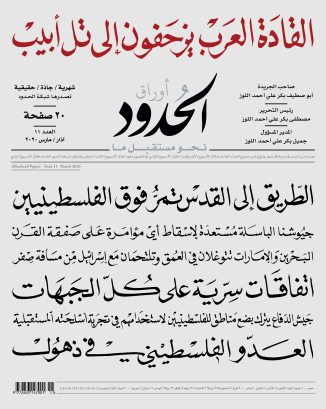
News satire has become ubiquitous in its popularity and widely diffused in many countries and contexts. This project aims to deepen, and expand, the burgeoning scholarship on news satire by looking at the transnational processes that underlie the production, content and consumption of pan- Arab news satire. The inherently transnational nature of pan-Arab news satire in its production and consumption—as it is often produced from diasporic vantage points, and speaks to audiences across multiple political contexts as well as to large diasporic communities—provides a rich platform to advance our understanding of the complex place of news satire in contemporary media environments. The proposed research aims to fill a gap in the scholarship by (1) conceptualising the transnational flows negotiated by contemporary news satire; (2) analysing how these flows are articulated on the production and content levels (3) investigating how (diasporic) audiences make sense of them. The study draws on a number of qualitative research methods including: interviews and focus groups, multimodal textual analysis, and photo-elicitation methods. It includes two periods of on-site ethnographic fieldwork among Arab diasporic communities in Berlin and Istanbul. Finally, by centring cases beyond Western contexts the study aims to build a more nuanced conception of the tensions and contestations that underlie the practice of news satire.
Project Details
Funding: FWO Postdoctoral Fellowship (# 12D1723N)
Starts on 1/10/22 Ends on 30/09/25
Research Manager: Yazan Badran
Performers of the Climate Crisis
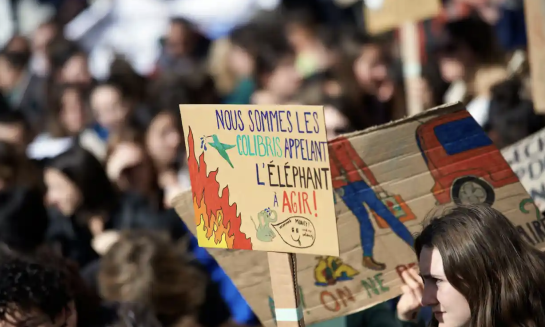
Théo Aiolfi, who obtained this year his PhD in political science from the University of Warwick, will be joining ECHO in September 2023 as part of a Marie Skłodowska-Curie (MSCA) Science and Innovation Fellowship (SIF) which he was awarded through the EUTOPIA alliance of universities. While he will be primarily based at CY Cergy Paris University for the first year of his fellowship, Théo will join ECHO for an internal secondment of six months at VUB during the academic year 2023/2024. In the research group, he will be mentored by Benjamin De Cleen to pursue his project entitled “Performers of the Climate Crisis: Eco-populism and Political Representation in the Anthropocene”. The project, which seeks to examine the specificities in the political communication of new forms of green activism and politics through the frame of populism as a mode of articulation of the global ecological crisis, will strongly benefit from the expertise of ECHO in the fields of populism studies and political communication.
Project Details
Funding: EU Marie Skłodowska-Curie (MSCA)
Starts on 01/09/2023;
Research managers: Benjamin De Cleen
ERC Reel Borders:
Fiction Film and Borderlands
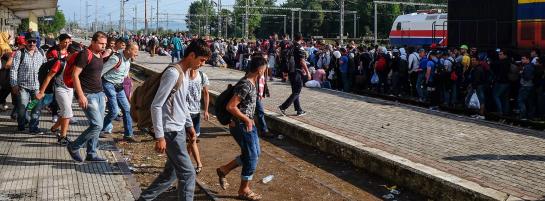
REEL BORDERS aims to bring fiction film to the centre of discussions about borders and belonging. As different institutions and actors increasingly turn to fiction film to circulate messages about borders, the study looks at how borders and fiction film have been related since the early 20th century. Border regimes are intimately intertwined with cultural imaginations and representations of borders and their insiders and outsiders.
Project Details
Started on 1/02/21 Ends on 31/01/26
Researchers: Silvia Almenara Niebla; Lennart Soberon; Irene Gutiérrez;
Academic Promotor: Kevin Smets
Website: www.reelborders.eu
Re-use of treated wastewater for irrigation and groundwater recharge: environmental impacts and public perception
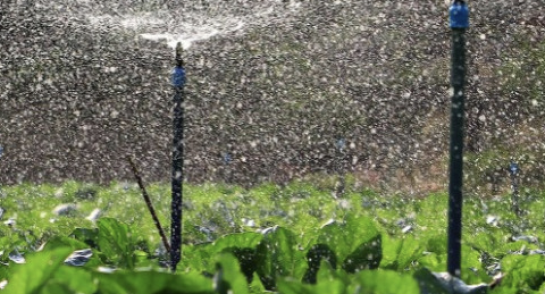
To evolve towards a sustainable robust water system, water re-use and reclamation of treated wastewater are essential. By re-using treated wastewater as a source for water for agriculture, industry, ecology or households, the water cycle can be closed to create a circular water economy. The two most important barriers hampering application of re-use of treated wastewater are (1) a lack of knowledge about its environmental impacts and (2) uncertainty about public perception and acceptance of water re-use.
This project aims at tackling these two crucial barriers in an interdisciplinary approach as these cannot be investigated separately. To install pilot sites to study environmental impacts, understanding of public perception and an effective communication strategy is needed since public reactions to the test might endanger the success of the experiment. Public acceptance, however, is only possible if safety can be ensured and scientifically demonstrated through a monitored pilot site.
Project Details
Started on 1/11/19 Ends on 31/10/24
Researchers: Bilana Gaume; Martha Jackson.
Academic Promotor: Joke Bauwens; Pascal Verhoest.
Completed Projects
Anti-populist discourse in European politics and media
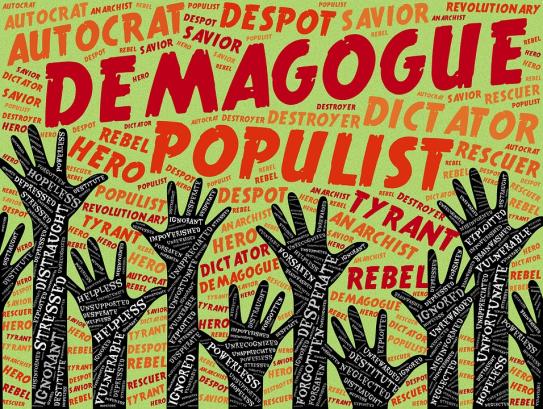
In 2017, the Cambridge dictionary picked ‘populism’ as its ‘word of the year’. This is of no surprise. In the European context in particular, populism is blamed for serious problems, such as the polarisation of political life, the decline of trust towards institutions, political instability, and the aggression and stridency seen in the public sphere. However, the wide use of the term raises questions about what exactly is captured by it, and whether it offers a fruitful way of framing all these developments. Despite the impressive growth we see in populism research in the last decade, little attention has been drawn to how traditional liberal-centrist political and media actors counter the challenge of populism – i.e. to anti-populism. What often goes unnoticed is that the negative valence that ‘populism’ has acquired, and its elevation to a central political frame may itself be contributing to polarisation by solidifying a new divide along the populism/anti-populism line. Anti-pop will explain the role of anti-populism in political and media discourse and its confrontation with populism, and the implications of these for democratic debate. It will do this by deploying an innovative interdisciplinary approach, combining tools from applied linguistics with rhetorical analysis and concepts from political theory and grounding it on the analysis of a large and varied body of data. Anti-pop’s findings and dissemination approach will foster in-depth reflection and assessment of this framing in European media, political, and institutional discourse, and will contribute to the nuancing of public debate.
Project Details
Funding: Marie Skłodowska-Curie Individual Fellowship.
Starts on 31/01/2022; Ends on 31/01/2024.
Research manager: Savvas Voutyras.
DIAMOND
Diversity and Information Media
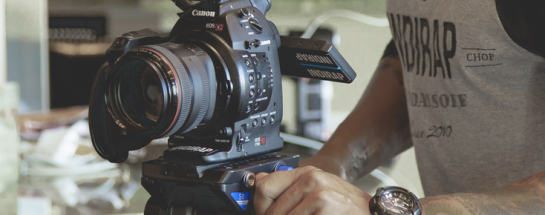
Information media diversity is quintessential for the working of contemporary democracies and is currently under threat. Threats emanate from different parallel yet interrelated trends: (1) concentration tendencies in the media with content consequences; (2) possibilities offered by digital technologies to reuse and redistribute existing content through different channels; and (3) possibilities offered by IP address-based technologies to target content at specific audiences. Consequently, the old logic that used to govern the media, that of ‘representative diversity’, that gives a proportional representation of social groups in society, is no longer sufficient. Given a diversified media production and differentiated audiences, a new, more elaborate and better equipped paradigm through which diversity is obtained and stimulated, is needed. This is why we introduce a novel normative rationale that we label ‘responsive diversity’.
Project Details
Funding: FRESH (FNRS) Ends on 11/01/2023
Project leader: Leen d’Haenens
Research manager: Pascal Verhoest
Children Online: Research and Evidence (CO:RE)
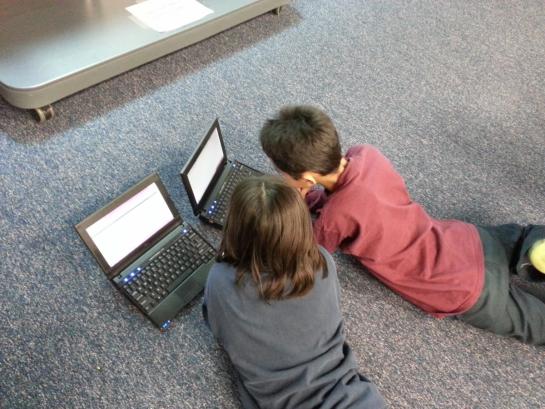
The aim of the coordination and support project “Children Online: Research and Evidence (CO:RE)” is the conception and implementation of a comprehensive and at the same time dynamic, pan-European knowledge platform on the experiences of children and young people in digital communication spaces and the effects of technological changes on children and young people. The CO:RE knowledge platform provides a holistic overview of the current research landscapes and enables access to empirical data for re-analysis. Furthermore, it offers a range of resources and materials, such as blog posts, reports, and e-brochures for researchers, educators, and policy-makers alike for more than 30 European countries. The project is funded within the EU framework of DT-TRANSFORMATIONS-07-2019: “The impact of technological transformations on children and youth” and has a duration of three years.
Project Details
Funding: EU framework of DT-TRANSFORMATIONS-07-2019
Starts on 01/01/2020; Ends on 31/12/2022.
Research managers: Joke Bauwens; Freija Poot; Joanna Beeckmans.
Shifting the Gaze

This project aims to contribute to a shift in the “gaze” towards migrants and refugees in media representations. More substantiated, positive and nuanced media representations can potentially alter the way in which public opinion perceives the complex phenomenon of migration. The goal of this project is twofold. The first phase of the project consists of a needs assessment among present and prospective media professionals and stakeholders (CSOs, diversity and migration associations). The aim is to analyze the concrete needs of media professionals to be able to represent migrants and refugees in more nuanced ways, and map existing good practices in the field of news and media production.
Project Details
Started on 1/11/20 Ends on 31/10/22
Reseacher: Lisa Ahenkona;
Academic Promotor: Kevin Smets
AdLit
Minors’ advertising literacy

CEMESO is a research partner in AdLit, a four year project on children and teenagers’ advertising literacy financed by Vlaio (Flanders Innovation & Entrepreneurship). AdLit has an interdisciplinary set-up that incorporates juridicial, educational and marketing components coming from various universities and research groups, i.e. UGent (Ghent University), UAntwerpen (University of Antwerp), KUL (Katholic University Leuven) and VUB (Free University Brussels). Taking into account the altered media environments that have allowed complex, intrusive and immersive advertising strategies, formats and techniques, the project strives to empower young consumers in their processing of and coping with advertising. Read more: http://www.adlit.be/english .
Project Details
Started on 1/11/20 Ends on 31/10/22
Researcher: Silke Lissens;
Academic Promotor: Joke Bauwens
IM2MEDIATE
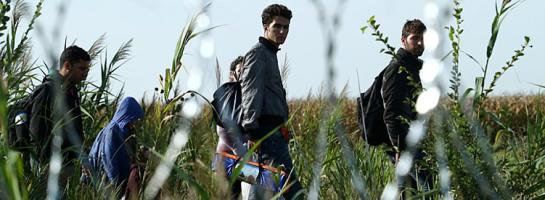
Governments, news media and public opinion in Europe are increasingly preoccupied with refugees seeking access to Western Europe. Public opinion is split (if not negative) and generally un- or misinformed (amalgamation across ‘groups’ being one of the problems), and integration policies cannot respond to the needs (see cross-country MIPEX results). This project aims to investigate the dynamic interplay between media representations of the current non-EU immigrant situation with a specific emphasis on the refugee situation on the one hand and the governmental and societal (re)actions on the other. The IM²MEDIATE project combines four complementary multi-stakeholder group perspectives: analysis of news media content and journalism culture; study of societal reactions of the general public; study of push/pull factors in migration from a refugee perspective; and policy analysis into national governmental (re)actions across countries with emphasis on Belgium and Sweden as divergent cases.
Project Details
Started on 01/11/18 Ends on 31/12/20
Researchers: Lien Mostmans; Valériane Mistiaen; Silke Lissens;
Academic Promotor: Kevin Smets
An analysis of self-promotion in journalistic supply in Flanders
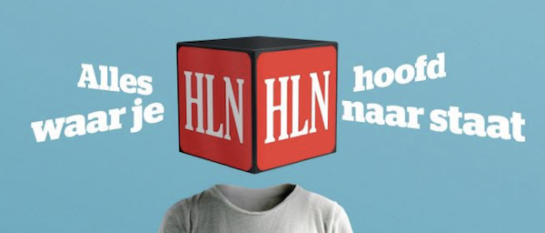
The Flemish media regulator reports annually on the concentration in the Flemish media sector and usually comes to alarming conclusions. The media concentration is increasing year after year. However, does this concentration have an impact on journalistic reporting? That is much less clear. We recently investigated at the research centers imec-SMIT and Desire whether there are changes in the reporting of own and competing brands after a change of ownership of a media company? Quite simply, we studied whether companies in the same family pay more attention to the "house brands" in their journalistic output than to other media brands. A content analysis of articles from Het Nieuwsblad and Het Laatste Nieuws on the one hand and items from Het Journaal from VRT and Het Nieuws from VTM on the other show that....
Project Details
Started in 2016; Ended in 2020.
Researchers: Jana Goyvaerts; Sarah Vis; Ike Picone; Karen Donders; Benjamin De Cleen.
